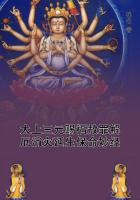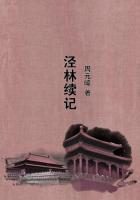One of the most original of recent English writers on Political Economy was W.Stanley Jevons (18351882).Thecombination which he presented of a predilection and aptitude for exact statistical inquiry with sagacity and ingenuity in theinterpretation of the results was such as might remind us of Petty.He tended strongly to bring economics into close relationwith physical science.He made a marked impression on the public mind by his attempt to take stock of our resources in thearticle of coal.His idea of a relation between the recurrences of commercial crises and the period of the sun-spots gaveevidence of a fertile and bold scientific imagination,though he cannot be said to have succeeded in establishing such arelation.
He was author of an excellent treatise on Money and the Mechanism of Exchange (1875),and of various essays oncurrency and finance,which have been collected since his death,and contain vigorous discussions on subjects of this nature,as on bimetallism (with a decided tendency in favour of the single gold standard),and several valuable suggestions,as withrespect to the most perfect system of currency,domestic and international,and in particular the extension of the papercurrency in England to smaller denominations.He proposed in other writings (collected in Methods of Social Reform ,1883)a variety of measures,only partly economic in their character,directed especially to the elevation of the working classes,oneof the most important being in relation to the conditions of the labour of married women in factories.
This was one ofseveral instances in which he repudiated the laisser faire principle,which,indeed,in his book on The State in Relation toLabour (1882),he refuted in the clearest and most convincing way,without changing the position he had always maintainedas an advocate of free trade.Towards the end of his career,which was prematurely terminated,he was more and morethrowing off "the incubus of metaphysical ideas and expressions "which still impeded the recognition or confused theappreciation of social facts.He was,in his own words,ever more distinctly coming to the conclusion "that the only hope ofattaining a true system of economics is to fling aside,once and for ever,the mazy and preposterous assumptions of theRicardian school."With respect to method,though he declares it to be his aim to "investigate inductively the intricatephenomena of trade and industry,"his views had not perhaps assumed a definitive shape.The editor of some of his remainsdeclines to undertake the determination of his exact position with respect to the historical school.The fullest indications wepossess on that subject are to be found in a lecture of 1876,On the Future of Political Economy .
He saw the importanceand necessity in economics of historical investigation,a line of study which he himself was led by native bent to prosecute insome directions.But he scarcely apprehended the full meaning of the historical method,which he erroneously contrastedwith the "theoretical,"and apparently supposed to be concerned only with verifying and illustrating certain abstract doctrinesresting on independent bases.Hence,whilst he declared himself in favour of "thorough reform and reconstruction,"hesought to preserve the a priori mode of proceeding alongside of,and concurrently with,the historical.Political economy,infact,he thought was breaking up and falling into several,probably into many,different branches of inquiry,prominentamongst which would be the "theory"as it had descended from his best predecessors,especially those of the French school,whilst another would be the "historical study,"as it was followed in England by Jones,Rogers,and others,and as it hadbeen proclaimed in general principle by his contemporary Cliffe Leslie.This was one of those eclectic views which have nopermanent validity,but are useful in facilitating a transition.The two methods will doubtless for a time coexist,but thehistorical will inevitably supplant its rival.What Jevons meant as the "theory"he wished to treat by mathematical methods(see his Theory of Political Economy ,1871;2d ed.,1879).
This project had,as we have seen,been entertained and partiallycarried into effect by others before him,though he unduly multiplies the number of such earlier essays when,for example,hementions Ricardo and J.S.Mill as writing mathematically because they sometimes illustrated the meaning of theirpropositions by dealing with definite arithmetical quantities.Such illustrations,of which a specimen is supplied by Mill'streatment of the subject of international trade,have really nothing to do with the use of mathematics as an instrument foreconomic research,or even for the co-ordination of economic truths.We have already,in speaking of Cournot,explainedwhy,as it seems to us,the application of mathematics in the higher sense to economics must necessarily fail,and we do notthink that it succeeded in Jevons's hands.His conception of "final utility"is ingenious.But it is no more than a mode ofpresenting the notion of price in the case of commodities homogeneous in quality and admitting of increase by infinitestimaladditions;and the expectation of being able by means of it to subject economic doctrine to a mathematical method will befound illusory.He offers (16)as the result of a hundred pages of mathematical reasoning what he calls a "curiousconclusion,"(17)in which "the keystone of the whole theory of exchange and of the principal problems of economics lies."This is the proposition that "the ratio of exchange of any two commodities will be the reciprocal of the ratio of the finaldegrees of utility of the quantities of commodity available for consumption after the exchange is completed."Now as long aswe remain in the region of the metaphysical entities termed utilities,this theorem is unverifiable and indeed unintelligible,because we have no means of estimating quantitatively the mental impression of final,or any other,utility.
But when wetranslate it into the language of real life,measuring the "utility"of anything to a man by what he will give for it,theproposition is at once seen to be a truism.What Jevons calls "final utility"being simply the price per unit of quantity,thetheorem states that,in an act of exchange,the product of the quantity of the commodity given by its price per unit ofquantity (estimated in a third article)is the same as the corresponding product for the commodity receiveda truth soobvious as to require no application of the higher mathematics to discover it.If we cannot look for results more substantialthan this,there is not much encouragement to pursue such researches,which will in fact never be anything more thanacademic playthings,and which involve the very real evil of restoring the "metaphysical ideas and expressions previouslydiscarded.The reputation of Jevons as an acute and vigorous thinker,inspired with noble popular sympathies,is sufficientlyestablished.But the attempt to represent him,in spite of himself,as a follower and continuator of Ricardo,and as one of theprincipal authors of the development of economic theory (meaning by "theory"the old a priori doctrine)can only lower himin estimation by placing his services on grounds which will not bear criticism.His name will survive m connection,not withnew theoretical constructions,but with his treatment of practical problems,his fresh and lively expositions,and,as we haveshown,his energetic tendency to a renovation of economic method.














